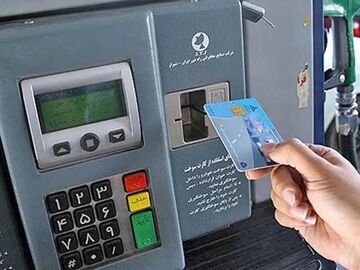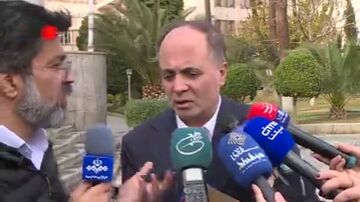TEHRAN (Bazaar) –Nader Entessar, Professor Emeritus of Political Science from university of South Alabama says that the Iranian nuclear team must stand firm and not allow the other side to dictate its terms.
Following is the full text of the Bazaar interview with Professor Entessar:
Bazaar: The new round of nuclear talks between Iran and the other side of the JCPOA will start on Monday. What is your assessment of this round of talks?
Entessar: The United States will try to act and sound tough to gauge the reaction of the Iranian negotiators. The West may even try to bluster and resort to issuing threats to seize the initiative. The Iranian team must stand firm and not allow the other side to dictate its terms. I hope that the current Iranian team of negotiators have by now learned from the mistakes of the previous team and have learned the West's negotiating style. If the West comes to the conclusion that it cannot demand one-sided concessions from Iran by offering false promises, it may act more realistically.
Bazaar: According to some news, Iran's nuclear team has brought many economic experts with it to Vienna, and Iran has announced that it is negotiating to lift sanctions. What message does this have for America?
Entessar: Iran's main message is that its principal goal is to work towards lifting (and not just suspending) economic sanctions, especially illegal secondary sanctions, against Tehran. Raisi's administration has been very consistent with this demand. The Bagheri-led negotiating team now will have an opportunity to clearly and unambiguously hammer this point in the Vienna talks.
Bazaar: In his recent travels, Robert Malley has been able to gain the support of the Persian Gulf states for a nuclear deal. However, during the Obama administration, the GCC member states opposed the JCPOA. What is your assessment of Robert Malley's trip?
Entessar: I think Robert Malley wanted to reassure Washington's allies in the Persian Gulf that any possible agreement with Iran will not be made at their expense and generally get a broad picture of the new and evolving regional mood towards Iran.
Bazaar: Some believe that if the talks fail, the United States will probably block the export of Iranian oil to China. Is this possible? Iran sells oil while under sanctions.
Entessar: The United States has tried numerous times, especially during the Trump era, to block Iranian oil exports to China. So far, Washington's efforts have had only a marginal impact on Iran's ability to export oil to China. Of course, the United States can make it harder and economically more costly for Iran to export its oil, but it cannot block the export of Iranian oil short of quarantining Iran, which will be a declaration and act of war.
Bazaar: If negotiations fail, what action might the United States take against Iran at the International Atomic Energy Agency?
Entessar: It can try to force the IAEA to refer Iran to the UN Security Council and hope to pass a UN resolution to sanction Iran again. The reaction of Russia and/or China will be crucial as either of these two countries can block the passage of an anti-Iran resolution in the UN Security Council or the IAEA
















نظر شما